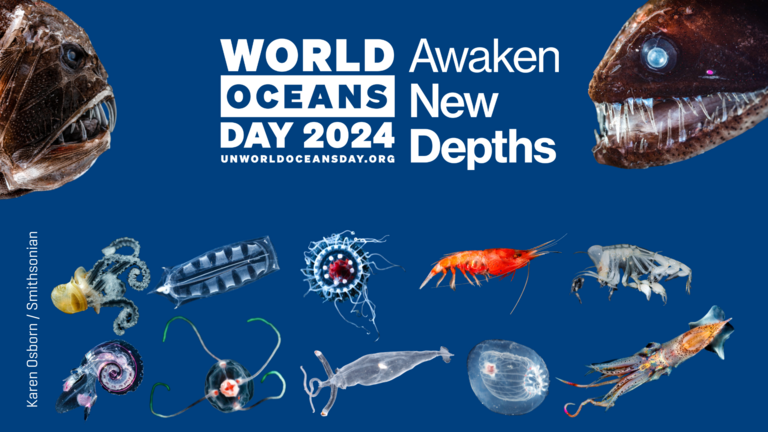Dive into fascinating deep-sea habitats
New video offers exciting insights into exploring the depths of the ocean
It is curiosity about the unknown and the search for a better understanding of deep-sea food webs that drives researchers. The MSM126 ‘JellyWeb Madeira’ expedition, which explored the ocean depths around the island of Madeira (Portugal) earlier this year, focused on fragile gelatinous organisms such as jellyfish, salps and arrow worms, which are still poorly understood but play an important role as predators and prey as well as for CO2 storage on the seafloor.
This video invites you to join the 22 international scientists on their expedition under the leadership of the GEOMAR Helmholtz Centre for Ocean Research Kiel with the German research vessel MARIA S. MERIAN and immerse yourself in the world of marine research. Images of the fascinating deep-sea habitats and their inhabitants at a depth of almost 2000 metres, as well as of the research work and the interaction on board, bring the adventure of the research expedition to life.
It is a good example of how scientists in international teams travel the world on research vessels to explore the ocean. Learning more about our oceans in order to protect them and use them sustainably is one of GEOMAR's central goals.
The ocean is the largest habitat on our planet, but much is still largely unknown. The United Nations World Oceans Day, celebrated every year on 8 June, is a reminder of this. It raises global awareness of the ecological importance of the oceans and the threats they face from climate change, pollution and overfishing. World Oceans Day was first celebrated in 2009.
This year, the official United Nations celebration will take place on 7 June. Under the theme ‘Awaken New Depth’, the United Nations Department of Ocean Affairs and Law of the Sea will host a celebratory event at UN Headquarters in New York at 10 a.m. US East Coast time (4 p.m. Central European Summer Time). The event will be webcast live.
Background MSM 126 ‘JellyWeb Madeira’:
The international expedition MSM 126 ‘JellyWeb Madeira’ with 22 experts from different research fields explored unknown underwater habitats and their biodiversity around the island of Madeira in early 2024. In particular, the researchers investigated the role of jellyfish in the marine food web.
Researchers from the University of Hamburg, Syddansk Universitet (SDU), the Marine and Environmental Sciences Centre (MARE-Madeira) of the Agência Regional para o Desenvolvimento da Investigação, Tecnologia e Inovação (Arditi), the Smithsonian National Museum of Natural History, Washington, and the University of Western Australia were involved. The video was produced by Uli Kunz.
The expedition was funded by the German Research Foundation (DFG) and the German Federal Ministry of Education and Research (BMBF).



